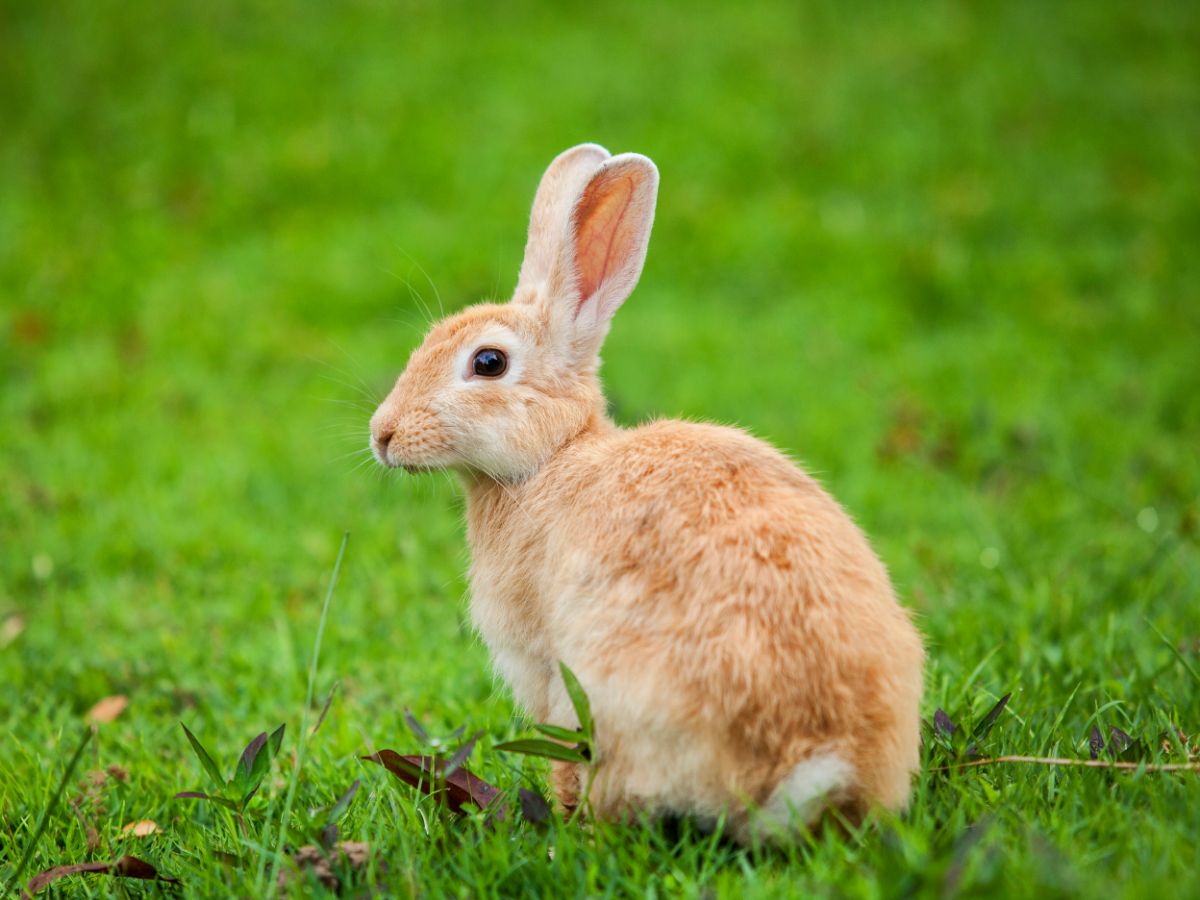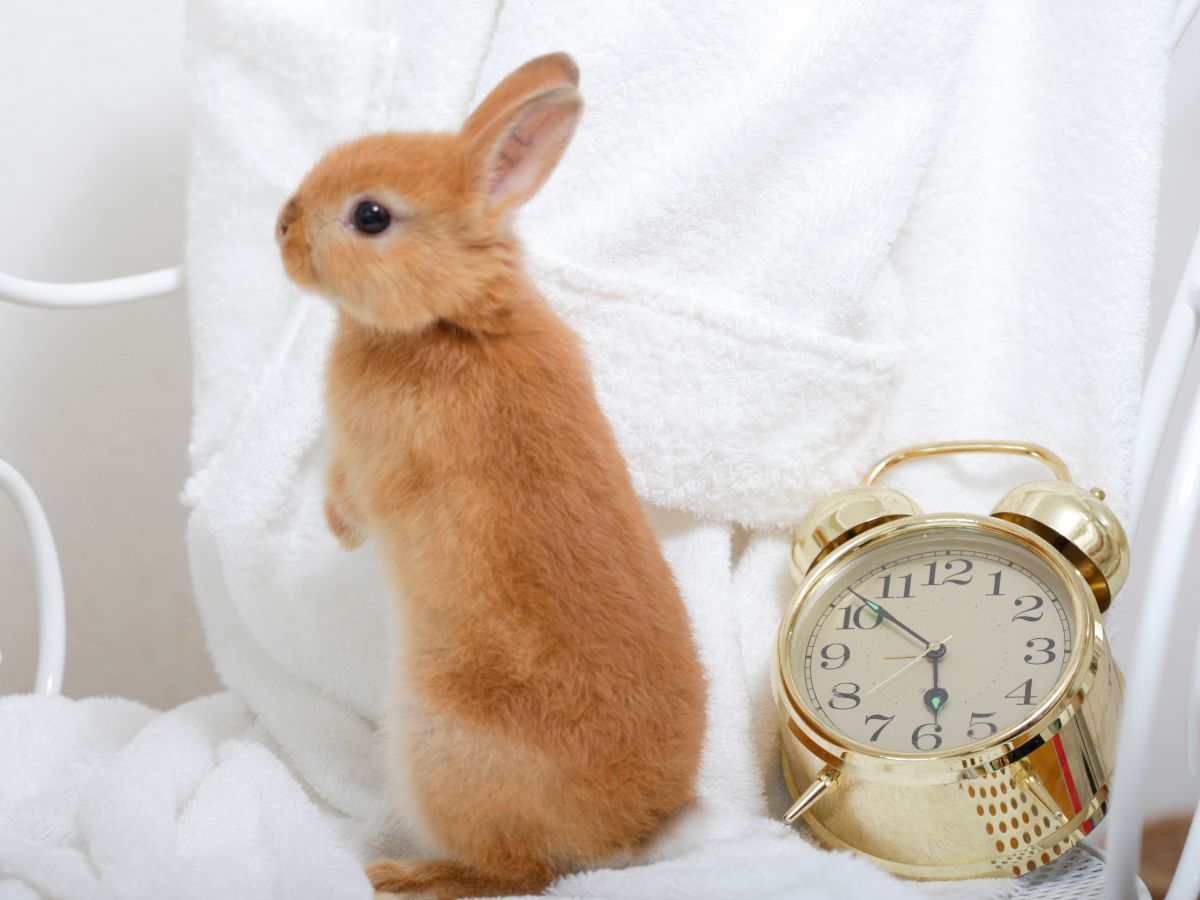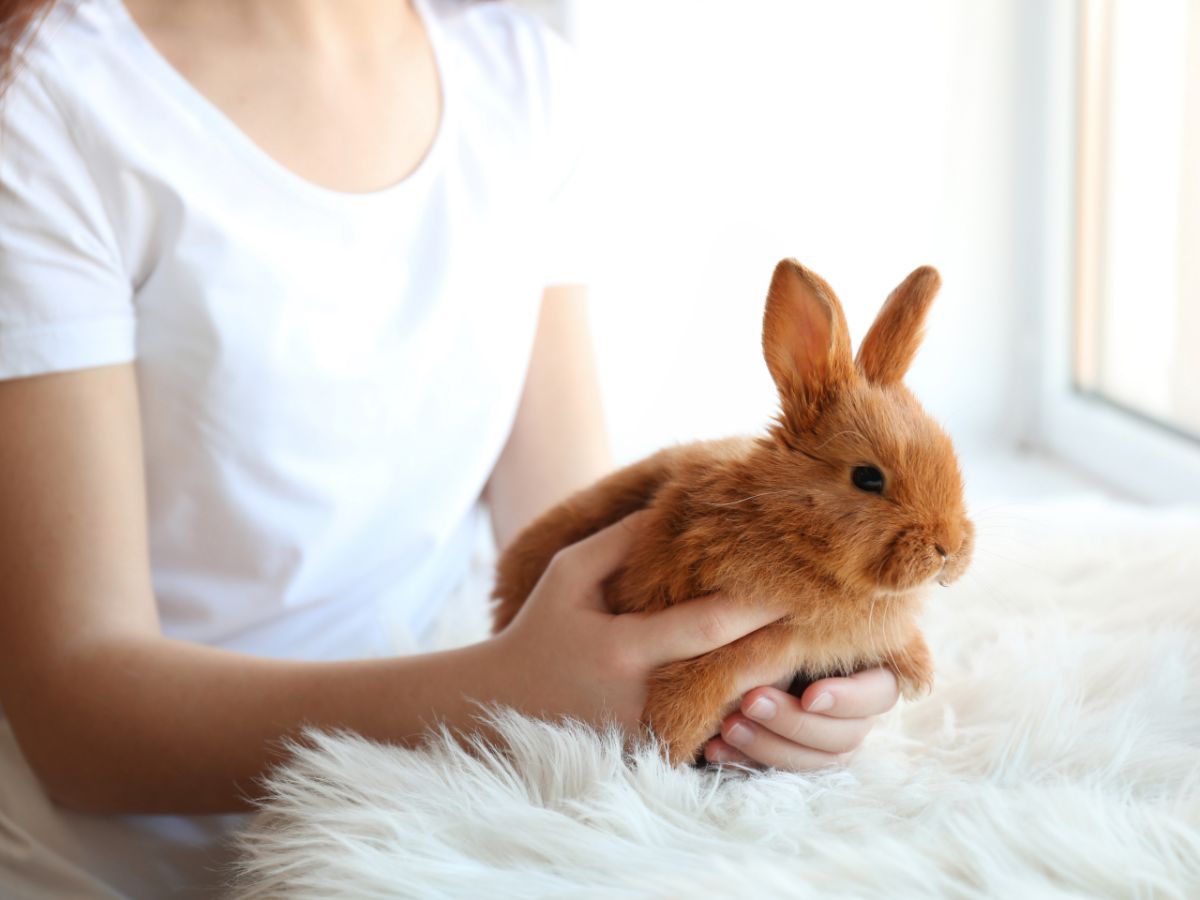Rabbits require a lot of care, which must be done daily, and others that must only be done weekly, monthly, or annually.
Every day, rabbits must be fed hay, pellets, and green leaves. You should replenish their water every morning, and the water bottle must be cleaned at least once a week. Clean their litter box, brush them, and give them 4 hours of exercise daily. You can also perform a brief health check.
Are you considering getting a rabbit and wondering how much attention they need, or do you already have a rabbit but looking to create a routine? Keep reading to learn about all the daily and less frequent care rabbits require.
Contents
Daily Care For Rabbits
Quite a few tasks must be completed daily if you own a rabbit. This includes replenishing their food and water, cleaning the litter box, brushing the rabbit, performing a general health check, and giving them exercise.
1. Replenishing Food And Water
The most important daily task is providing your rabbit with fresh food and water.
Rabbits only need to be fed once a day, but you must ensure that they have enough food to keep them happy for the day. These animals are natural grazers – meaning they will constantly eat through the day, so their digestion keeps moving.
You can either give your rabbit all their daily food at the same time, or you can give them (for example) hay and pellets in the morning before you leave for the day and leafy greens in the evening when you have dinner.
Rabbit owners tend to enjoy giving their rabbits a small treat before they go to bed. This is a good way to lure your rabbit into their enclosure for the night.
Another reason this trick comes in handy is that you can use it to see if your rabbit is not feeling well. Rabbits love treats, so if they turn one down, you know that they probably aren’t feeling 100%.
You should also replenish their water daily to ensure they always have water access. It is also important to check that the bottle is functioning correctly. Once a week, you should clean your rabbits’ water bottles thoroughly.
2. Clean The Litter Box
Another task that you must do daily is cleaning out the rabbit’s drop tray. If you leave their waste and let it accumulate over a few days, it will create a very unpleasant atmosphere in your rabbit’s enclosure and may even cause health problems.
When you clean the litter box, you should make a solution comprising half vinegar and half warm water. You should never use bleach!
While cleaning the litter box, you can also check to see if any of your rabbits’ droppings have an unusual shape, size, or texture. Their droppings should be round and hard, sometimes clusters of soft droppings called cecotropes.
Cecotropes are not considered a waste product as rabbits eat the pellets to provide them with Vitamin B12 (which they need). Check for clumps of hair in their droppings, as this can signify that they struggle to pass the hair they swallow.
Also, check the color of your rabbit’s urine. You must visit the veterinarian if there is blood in the urine. Thick gray or white urine can indicate that your rabbit is consuming too much calcium.
3. Groom Your Rabbit
Rabbits must be brushed once a day, and during their shedding season, you should brush them 2 or 3 times a day to prevent them from consuming too much fur. This is because rabbits cannot vomit, so they must pass any hair they swallow through their system.
If hair gets stuck in the rabbit’s system, it can die from an intestinal impaction referred to as trichobezoar forms. Papaya tablets can be given to your rabbit 2-3 times a week to prevent this from happening.
A soft bristle brush, rubber brush, or flea comb is best. You must never use wire slicker brushes as rabbits have extremely delicate skin.
4. Perform A Quick Health Check
When socializing and playing with your rabbit, a brief and general health check can be done to ensure everything is as usual.
Touch their stomach to feel for unfamiliar lumps – their stomach should feel like soft dough.
Check that they are breathing normally, eating as usual, with nothing stuck in their fur, and that they aren’t injured or in pain. You will quickly learn how your rabbit looks and behaves when they are happy and can sense when something is not right.
You should also check their rear end regularly (once or twice a day) to ensure no feces buildup as this can attract flies. Your rabbit could end up with a lethal medical condition called flystrike.
5. Exercise Your Rabbit
Rabbits need around 4 hours of exercise every day which should be broken up into more frequent, shorter periods. Rabbits will have short periods of high energy followed by a long period of low energy. For example, if you let your rabbit roam for an hour, they will only run for about 15 minutes.
If you rabbit-proof a room, or even your entire house, you can leave them to wander around the whole day while you are at work.
Less Frequent Rabbit Care
While some tasks need to be done daily, others can be done less frequently – as and when needed.
Weekly Care
Each week you should check your rabbit’s nose and eyes for discharge. Watery eyes or a stuffy nose can indicate that your rabbit has snuffles.
Clean their ears and ensure that there are no ear mites. Another thing to check is the feet for sores, especially as they age.
Gently feel their fur and skin to check for fleas. You must also see if your rabbit has dandruff, which can signify mites. See if you can spot any bumps or redness on their skin.
Check your rabbits’ teeth by pulling back their lips and massaging their cheeks. This procedure will allow you to feel if their teeth are starting to overgrow.
Lastly, observe your rabbit when they are hopping around or cleaning themselves to ensure that they can keep their balance. Poor balance could mean that your rabbit has an ear or skull infection.
Monthly Care
Every month or so, your rabbits’ nails should be trimmed – although it could be more regular if their nails grow fast. You can cut their nails at home if you have the confidence; otherwise, you can take them to the veterinarian or pet store employee.
If you cut your rabbit’s nails at home, remember to keep your rabbit calm during the procedure. Use cat nail clippers and keep some styptic powder or cornstarch on standby if you cut the nail too short and cause bleeding.
Rabbits do not need to be declawed!
Something else to check is your rabbit’s scent gland which can be found under their chin. Older rabbits’ scent glands tend to get infected easily.
Annual Care
Your rabbit should visit the veterinarian each year for an annual health checkup. The vet will examine your rabbits’ mouths during this appointment to evaluate their dental health. They will also check the body temperature of your rabbit.
Your rabbit can be spayed or neutered to prevent them from having babies and will get rid of aggressive behavior in males and uterine cancer in females.
Why Do Rabbits Need A Routine?
Rabbits are animals of prey, so they are constantly on edge and highly strung. When a routine is introduced into their life, they will feel safer, calmer, happier, and more confident as they know what to expect during their daily lives.
When rabbits have a predictable day, they won’t be as anxious and, as a result, will be far more likely to approach you and other visitors. Your rabbit will probably also be more adventurous and enjoy exploring its surroundings.
Conclusion
Rabbits require a lot of attention and regular care. They cannot just be placed in an enclosure and left to survive independently without a second glance.
Hopefully, the breakdown of rabbits’ daily care needs comes in handy.




